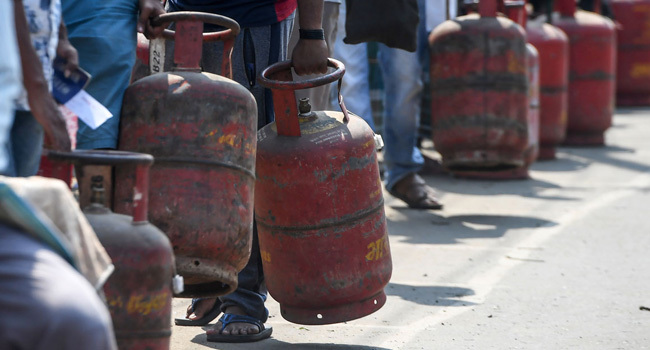
The Federal Government has stated that it is pursuing a reaffirmed goal of cleaning up about 5 million homes by 2030.
At the opening ceremony of the 48th Nigeria Annual International Conference & Exhibition (NAICE) 2025 on Monday, the Minister for State, Petroleum Resources (Gas), Ekperikpe Ekpo, delivered the ministerial address and remarks.
Building a Sustainable Energy Future: Leveraging Technology, Supply Chain, Human Resources, and Policy is the theme of this year’s conference.
He argued that the achievement of the target only can be achieved by more money being invested in gas infrastructure for crucial projects like the OB3 and AKK pipelines, moving forward with national gas deliveries, and supporting modular and scalable gas projects, such as mini-LNG and CNG stations.
Read more: According to Ojulari, Africa Needs Bankable Energy Projects.
Through strategic public-private partnerships in the gas value chain’s logistics, retail, and logistics segments, the government is also making strides to improve last-mile access, promote local economic activity, and create jobs.
“His Excellency, President Bola Ahmed Tinubu, GCFR, has put gas at the center of Nigeria’s energy strategy. His vision, which is best expressed in the phrase “From Gas to Prosperity,” is a reflection of our shared national desire to use our abundant natural gas resources to boost industrialization, create jobs, and expand access to clean, affordable energy for all Nigerians.
We have made significant progress in keeping with this vision over the past year. We have given gas availability priority to manufacturing hubs, power plants, and industrial corridors as we have expanded our gas supply for industrial use. I’ve been assured that every gas offtaker currently has the gas they need for their industrial processes, distributed cylinders across the six geopolitical zones, gave empowerment to women and youth, and promoted clean cooking.
We are also making significant advancements in the midstream and downstream sectors as part of the Decade of Gas Initiative.
Notably, we have supported the construction of virtual pipelines and gas processing facilities, ensuring gas reaches off-grid and underserved communities, supporting private sector investments in LPG and CNG infrastructure, including autogas stations, domestic cylinder manufacturing, and distribution networks, and improved coordination through the Decade of Gas Secretariat, promoting alignment and accountability across Ministries, Departments, and agencies, and advancing the Nigerian Gas Flare Commercialization Programme (NGFCP), which advances environmental goals, secured presidential approvals to
He added that the Midstream Downstream Gas Infrastructure Fund (MDGIF) provides much-needed financial support to project promoters.
All of these efforts are based on a single, unwavering conviction: Nigerians must use gas as a means of inclusive growth, national development, and energy security, not just as an export commodity.
The Minister noted that each of the four pillars, which are identified as the focus of the conference theme, has a significant impact on Nigeria’s energy future.
He argued that the use of automated tools, digital solutions, and data-driven tools throughout the gas value chain is essential.
Emerging technologies can increase efficiency, lower emissions, and improve delivery, from reservoir monitoring to distribution analytics. He stated that the Ministry works with industry players to promote digital innovation.
He argued that maintaining the gas industry requires a strong local supply chain.
We are promoting localization of equipment manufacturing, pipe production, and other crucial components in an effort to reduce import dependence and strengthen national resilience through the Nigerian Content Development and Monitoring Board (NCDMB).
Our greatest asset is still our human resource. Through continuous training, strategic academic-industry partnerships, and deliberate youth and gender inclusion policies in the gas industry, we are committed to creating a technically sound, diverse, and future-ready workforce.
A solid regulatory and fiscal foundation has been provided by the Petroleum Industry Act (PIA). He noted that we are putting in place market-reflective gas pricing policies, encouraging deepwater gas development, and enforcing domestic supply obligations to boost investor confidence and sector growth, “so on the whole.”
According to Lopkobiri, collaboration is the key to achieving a sustainable energy future for Nigeria.
Source: Channels TV

Leave a Reply